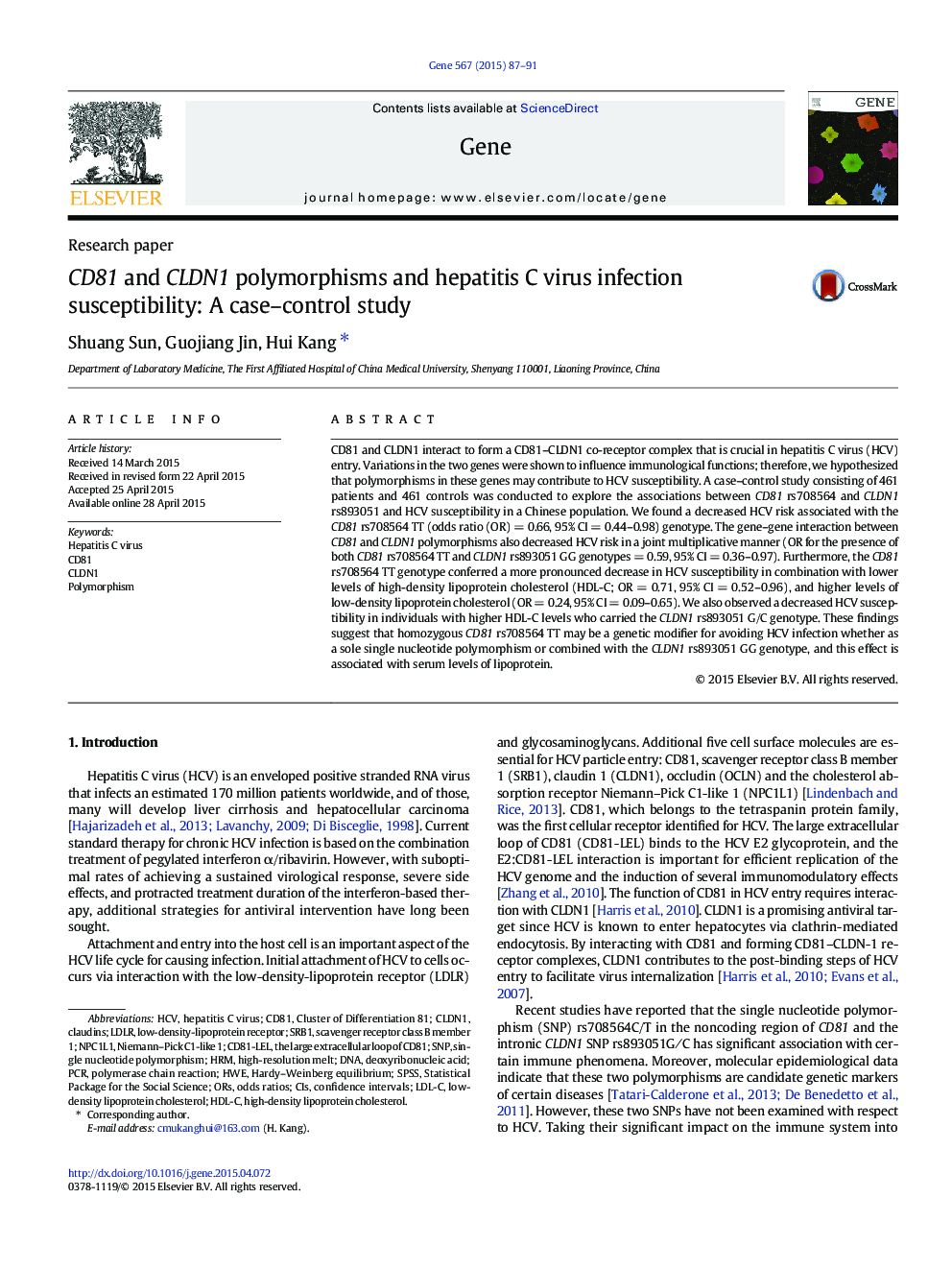| Article ID | Journal | Published Year | Pages | File Type |
|---|---|---|---|---|
| 2815742 | Gene | 2015 | 5 Pages |
Abstract
CD81 and CLDN1 interact to form a CD81-CLDN1 co-receptor complex that is crucial in hepatitis C virus (HCV) entry. Variations in the two genes were shown to influence immunological functions; therefore, we hypothesized that polymorphisms in these genes may contribute to HCV susceptibility. A case-control study consisting of 461 patients and 461 controls was conducted to explore the associations between CD81 rs708564 and CLDN1 rs893051 and HCV susceptibility in a Chinese population. We found a decreased HCV risk associated with the CD81 rs708564 TT (odds ratio (OR) = 0.66, 95% CI = 0.44-0.98) genotype. The gene-gene interaction between CD81 and CLDN1 polymorphisms also decreased HCV risk in a joint multiplicative manner (OR for the presence of both CD81 rs708564 TT and CLDN1 rs893051 GG genotypes = 0.59, 95% CI = 0.36-0.97). Furthermore, the CD81 rs708564 TT genotype conferred a more pronounced decrease in HCV susceptibility in combination with lower levels of high-density lipoprotein cholesterol (HDL-C; OR = 0.71, 95% CI = 0.52-0.96), and higher levels of low-density lipoprotein cholesterol (OR = 0.24, 95% CI = 0.09-0.65). We also observed a decreased HCV susceptibility in individuals with higher HDL-C levels who carried the CLDN1 rs893051 G/C genotype. These findings suggest that homozygous CD81 rs708564 TT may be a genetic modifier for avoiding HCV infection whether as a sole single nucleotide polymorphism or combined with the CLDN1 rs893051 GG genotype, and this effect is associated with serum levels of lipoprotein.
Keywords
ORSNiemann–Pick C1-Like 1Low-density-lipoprotein receptorSRB1Statistical Package for the Social ScienceNPC1L1CD81CLDN1HDL-CLDL-CLDLRHWESPSSCISHRMclaudinsDNAdeoxyribonucleic acidHardy–Weinberg equilibriumcluster of differentiation 81high-resolution meltconfidence intervalshigh-density lipoprotein cholesterolodds ratiosHepatitis C virusHCVpolymerase chain reactionPCRPolymorphismSingle nucleotide polymorphismSNPLow-density lipoprotein cholesterolscavenger receptor class B member 1
Related Topics
Life Sciences
Biochemistry, Genetics and Molecular Biology
Genetics
Authors
Shuang Sun, Guojiang Jin, Hui Kang,
